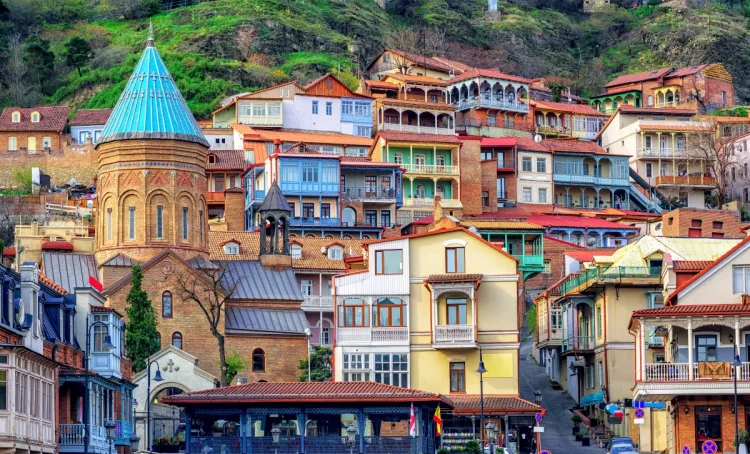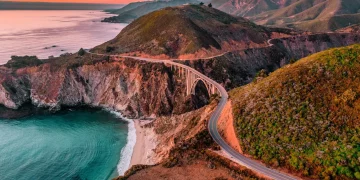Introduction
When people hear “Georgia,” they often think of southern U.S. charm or maybe the 2008 war headlines. But in 2024, a different narrative took over. Georgia—the small, mountainous country tucked between Europe and Asia—suddenly found itself at the top of travel forums, trending TikToks, and digital nomad community lists. In a world still recalibrating post-pandemic priorities around mobility, affordability, and quality of life, Georgia emerged as a remote work paradise. Tbilisi’s quirky cafés and Batumi’s Black Sea sunsets became the new visual vocabulary of location independence. Why did this happen so suddenly—and so decisively? The answer blends geography, government policy, and a growing lifestyle shift among remote workers seeking culture and cost-efficiency over co-working clichés.
The Visa Magic That Opened the Doors
Unlike many European countries with strict entry rules or limited visa options for non-EU nationals, Georgia quietly implemented one of the most nomad-friendly visa regimes in the world. Citizens from over 90 countries—including the U.S., Canada, EU, UK, Australia, Japan, and much of Latin America—can stay visa-free for up to 365 days. No visa runs, no expensive applications, no paperwork headaches. This one rule alone turned heads across the digital nomad community, particularly among long-term travelers weary of 90-day Schengen limits.
Combine that with the fact that Georgia doesn’t tax foreign income for most residents who stay under 183 days, and you’ve got a sweet spot for freelancers, remote employees, and online entrepreneurs alike. In 2024, Reddit’s r/digitalnomad threads frequently recommended Georgia as an “underrated haven” for people building businesses or managing clients in Western time zones while living affordably on the edge of the Caucasus.
Tbilisi: A Capital Tailored for Creative Nomads
Tbilisi isn’t just politically open—it’s emotionally and culturally magnetic. The city pulses with an energy that fuses old-world charm with post-Soviet grit and global digital optimism. Its architecture is a kaleidoscope of ancient churches, crumbling balconies, and avant-garde bridges. You’ll find Brutalist courtyards hiding coworking studios with fiber-optic speeds, and hip cafés like Stamba or Fabrika filled with laptops, flat whites, and Georgian wine at 3pm.
What makes Tbilisi stand out isn’t just aesthetic—it’s the rhythm. Life here flows slower but feels richer. Rent for a one-bedroom in the city center hovers around $400–$600/month, often with balconies overlooking the old town. SIM cards cost a few dollars, and taxis rarely exceed $3 within city limits. Grocery shopping can feel indulgent: local cheese, fresh produce, warm bread, and regional wines for under $20 a week.
Digital nomads in 2024 began calling Tbilisi the “Balkan-Brooklyn of the Caucasus.” Yet it lacks the pretension that’s crept into more saturated nomad hotspots like Lisbon or Medellín. The creative community is real, not curated. Artists, architects, coders, and writers often mingle at gallery openings, jazz nights, or hilltop picnics. English is widely spoken in youth circles, and most Georgians are unfailingly welcoming—proud of their country’s rise, but modest in tone.
Batumi: The Black Sea Surprise for Work and Play
While Tbilisi wins on culture and community, Batumi steals the spotlight for nature-meets-urban escapes. In 2024, this once-overlooked port city gained traction among remote workers who preferred coastal air, subtropical gardens, and quick weekend hikes into national parks. Think of it as a hybrid between Varna and Dubai, but with Georgian prices and less fanfare.
Apartments with sea views cost as little as $350/month. Cafés and coworking spaces line the waterfront promenade, with digital workers often typing away just steps from the waves. Direct access to mountains, lakes, and nearby villages makes Batumi a dream base for lifestyle nomads who want contrast: work hard on weekdays, then paraglide, trek, or hit the wine valleys by Saturday.
Roamcox readers frequently praised Batumi’s blend of modernity and ease. There’s a casino strip and high-rise skyline for those who like city buzz, but also botanical gardens, pebble beaches, and waterfall trails. The city’s municipal WiFi zones, growing tech hubs, and seasonal events calendar make it not just scenic—but functional. It’s Georgia’s best-kept digital secret no longer.
Affordability: Living Well Without the Hustle
Perhaps no other factor mattered more in 2024 than affordability. As inflation bit into nomadic budgets globally, Georgia stood firm as a low-cost, high-quality alternative. Monthly costs for solo digital nomads—including rent, utilities, mobile data, coworking memberships, meals out, and transportation—often stayed below $1,000. That’s not “budget travel” living either—it’s cappuccinos in leafy courtyards, dinners of khinkali dumplings and wine, and yoga classes under medieval arches.

Groceries remain remarkably inexpensive, thanks to strong local agriculture. A week’s worth of veggies, dairy, and bread rarely tops $15. Public transportation in Tbilisi is efficient and nearly free ($0.30 per ride), while Georgia’s domestic flights and trains link regions without logistical friction.
Compared to Bali’s rising costs or Lisbon’s gentrified pricing, Georgia became a breath of financial fresh air. In 2024, many digital nomads reported relocating here from Mexico City, Prague, or Chiang Mai simply to slow down, save more, and reset their routines in an affordable, inspiring environment.
Culture Without Commercialization
Georgia isn’t trying to be the next Chiang Mai or Playa del Carmen. And that’s exactly why it resonates with Roamcox’s crowd. Its traditions feel unspoiled. The supra (traditional feast) is still a sacred ritual. Folk songs echo from open windows. Neighbors still bring you tomatoes from their garden. In 2024, digital nomads weren’t just chasing Wi-Fi—they were craving depth, story, and soul.
The culture of hospitality—“guest is god”—is deeply ingrained in Georgian identity. Locals often invite nomads to weddings, weekend getaways, or long wine-fueled dinners without pretense. This openness isn’t transactional. It’s a way of life that doesn’t change just because foreigners arrive with laptops and yoga mats.
Even as coworking spaces grow in number, they haven’t replaced the traditional café as the social nerve center. Places like Prospero’s Books or Chveni are equal parts office, living room, and cultural lab. That organic blend of work and life is why so many digital workers in 2024 extended their “quick visit” into six-month stays—or longer.
Infrastructure That Works—Quietly
Despite its image as a rugged mountain country, Georgia boasts digital infrastructure that rivals far richer nations. Tbilisi’s internet speeds regularly clock in at 100 Mbps+. Mobile coverage is excellent even in remote valleys. Water, electricity, and digital services are consistent and affordable. The government’s embrace of e-services—from tax ID registration to healthcare—is refreshingly efficient for those settling in longer.
And while English isn’t spoken everywhere, it’s increasingly common among youth and professionals, especially in the cities. Signage, public services, and transport apps accommodate travelers well. Airports in Tbilisi and Kutaisi saw major upgrades in 2023–24, with more direct connections from Europe, Central Asia, and the Middle East—making it even easier to reach this once “fringe” destination.
Roamcox-Style Balance: Adventure, Identity, and Meaning
What set Georgia apart in 2024 wasn’t just the spreadsheets and headlines—it was the feeling. Roamcox readers aren’t content with checklists; they want contrast, depth, and discovery. Georgia delivered all three. A morning in a hammock with your laptop. An afternoon hike to a hidden monastery. A dusk dinner with strangers-turned-friends debating politics and poetry. Here, being a digital nomad didn’t mean being transient. It meant being rooted in a place without owning it.
Georgia let nomads redefine what success looks like: not just work-life balance, but work-life story. Every day held a different tempo. Every corner held a surprise. In 2024, it wasn’t just a stop on the route—it was the whole destination.





















